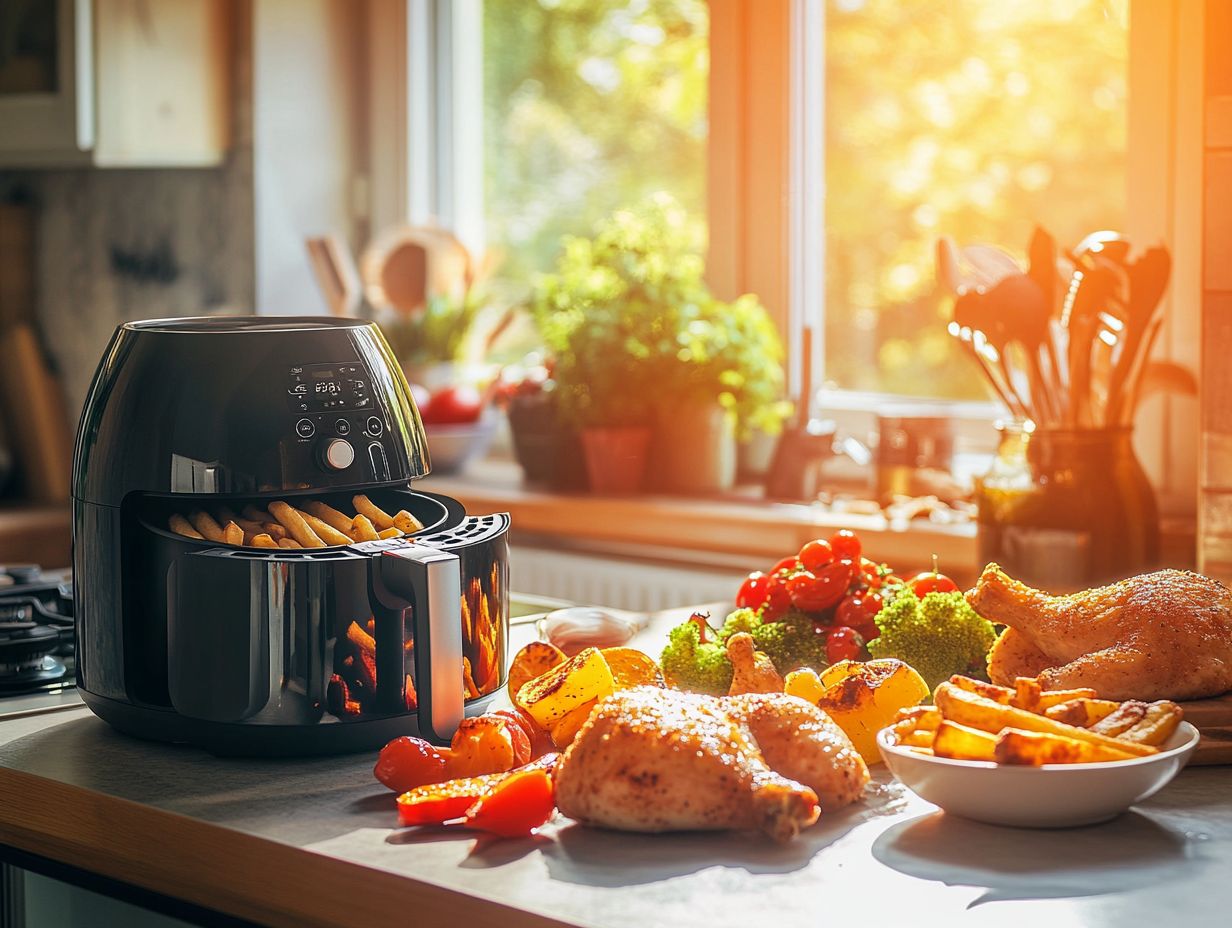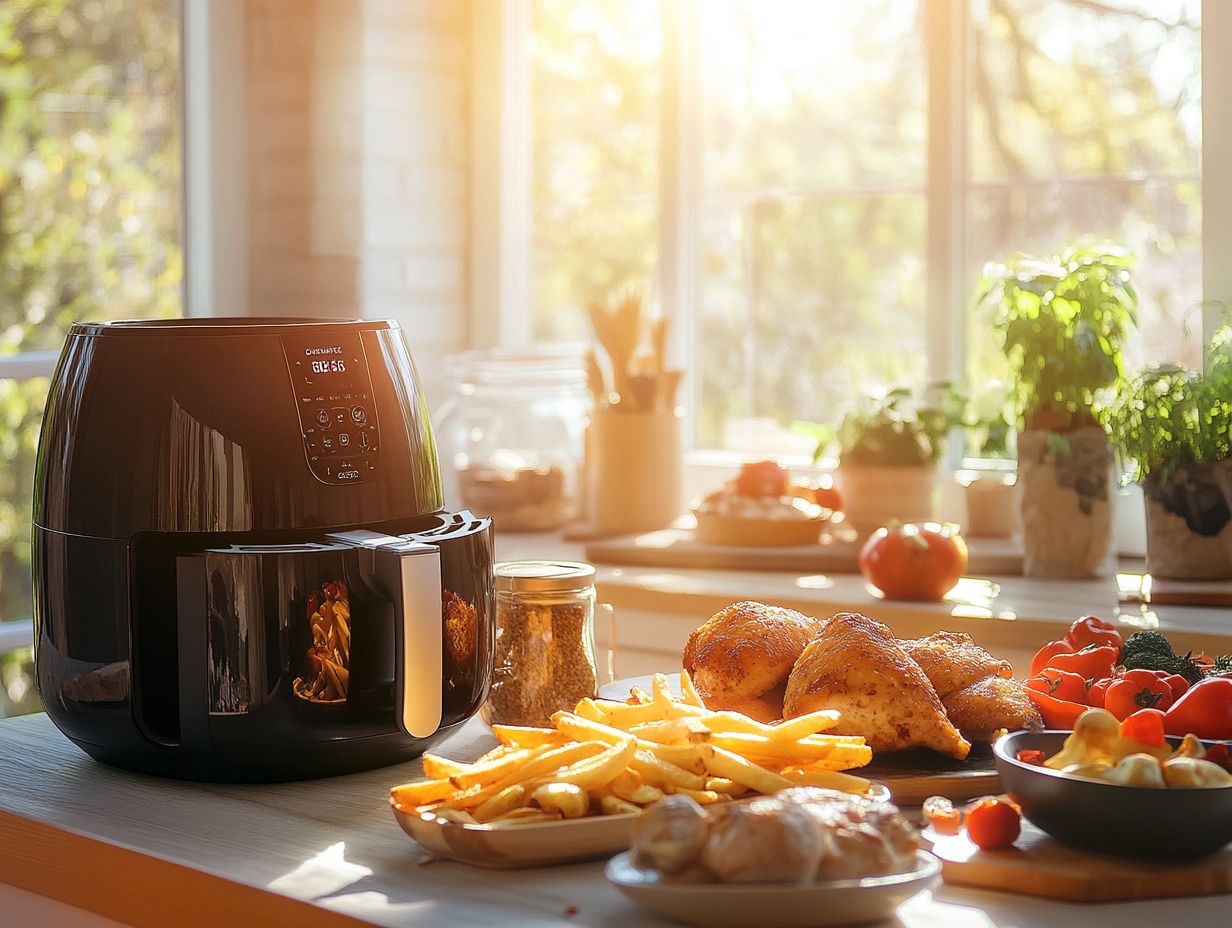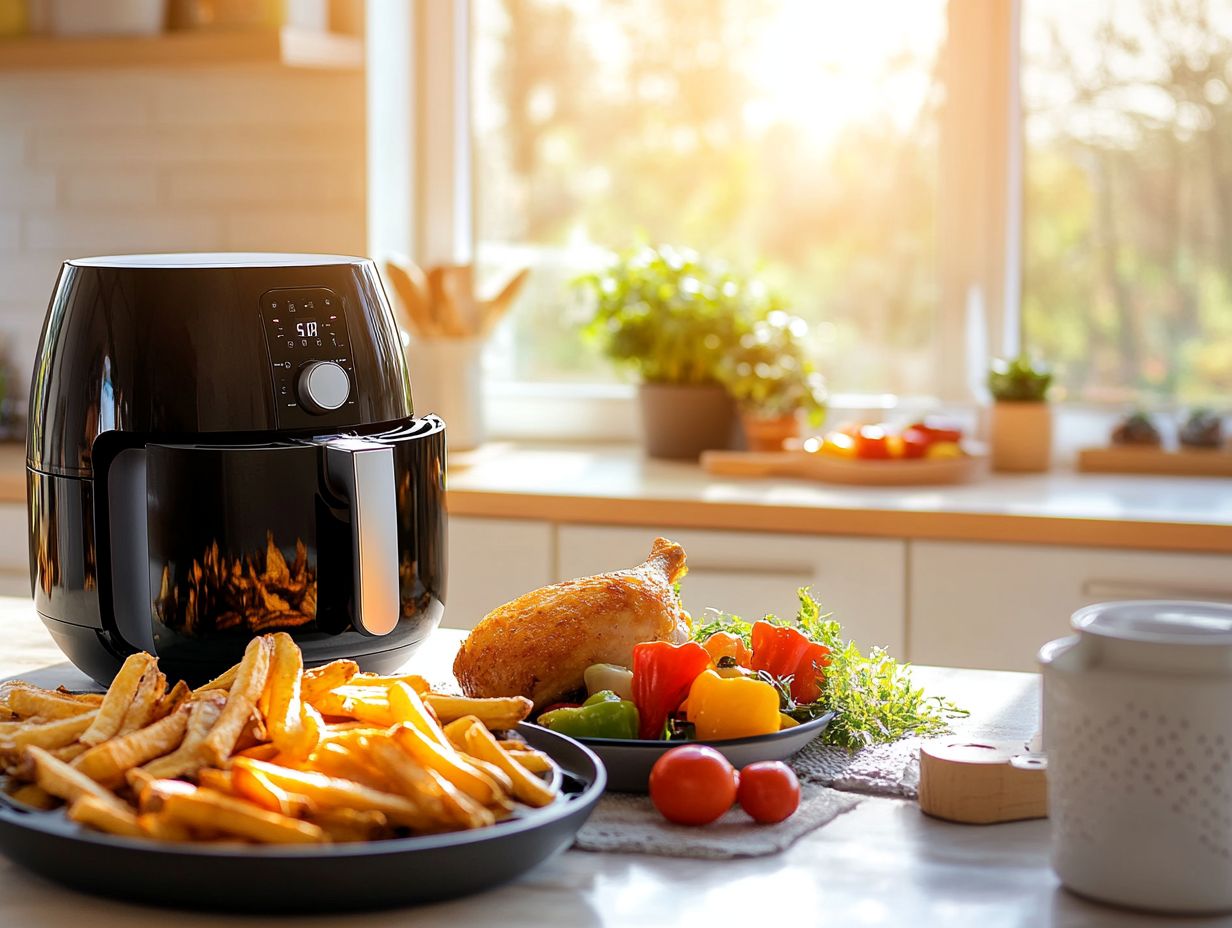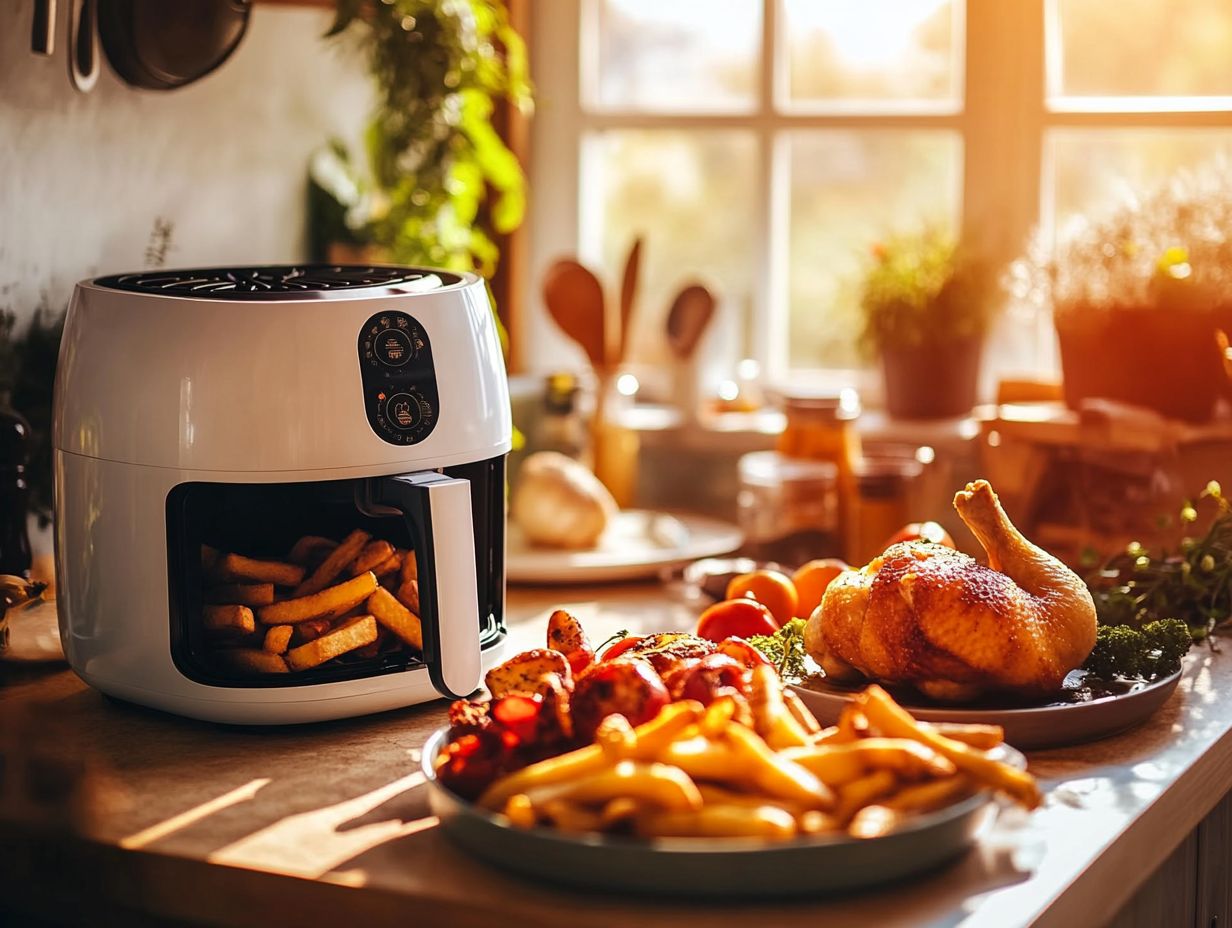Should You Get an Air Fryer? The Pros and Cons You Need to Know
Are you thinking about adding an air fryer to your kitchen lineup? With the promise of crispy, delicious meals using way less oil, it’s no surprise these gadgets have become so popular.
An air fryer is a cooking device that uses hot air circulation to whip up your favorite foods. It can offer all sorts of health benefits and time-saving perks you might appreciate.
Of course, there are some potential downsides to consider, like health risks and costs. This guide will help you figure out whether an air fryer fits your cooking style and preferences.
Keep reading to make an informed decision!
What is an Air Fryer?

An air fryer is that kitchen gadget you didn’t know you needed but will soon wonder how you ever cooked without it. It uses advanced cooking techniques to circulate hot air around your food, offering a healthier alternative to traditional frying.
With this nifty appliance, you can enjoy crispy treats using way less oil, which is perfect if you’re trying to eat healthier. But it doesn’t stop at frying—air fryers are super versatile and can also bake, roast, and grill, making them a fantastic addition to your culinary toolkit.
Explanation of How it Works
Air fryers work their magic by circulating hot air around your food, letting it cook evenly and giving you that sought-after crispy texture without drowning it in oil.
This cool process, known as rapid air technology, uses a powerful fan to blast heated air in all directions, wrapping your food in warmth from every angle.
Temperature control is super important here, too—you’re able to select precise degrees for different dishes, which really impacts how well everything cooks. For example, keeping those temps between 350°F and 400°F can help you nail the perfect crispness for both vegetables and meats.
Don’t forget about cooking time, either! Overcooking can leave your food dry, while undercooking means it’s not quite ready to eat. So, timing is key to ensuring your meals come out just right!
The Pros of Using an Air Fryer

Using an air fryer comes with a ton of perks that can really amp up your cooking game, making it a great addition to your kitchen.
This versatile gadget lets you whip up crispy food with less fat, so you can enjoy your favorites without the guilt. Plus, it encourages healthier cooking by cutting down on oil use.
You’ll find that air fryers are super user-friendly, which makes meal prep a piece of cake. And with their cooking efficiency, you’ll be able to get meals on the table faster—perfect for those busy days!
Health Benefits
One of the biggest perks of using an air fryer is how it can seriously cut down the fat content in your meals, making it easier to support a healthier lifestyle and those weight loss goals.
This nifty kitchen gadget cooks your food by circulating hot air, giving you that crispiness you love from traditional frying but with way less oil. In fact, studies show that air frying can reduce fat content by up to 75% compared to regular frying methods. That’s a win for avoiding those pesky trans fats and unnecessary calories!
Plus, air-fried foods often keep more vitamins and minerals, thanks to shorter cooking times. So, by embracing air frying, you can maintain a balanced diet while still enjoying delicious flavors without any guilt.
Convenience and Time-Saving

Air fryers are all about convenience, letting you whip up meals quickly and efficiently—perfect for your fast-paced lifestyle.
These nifty kitchen gadgets streamline the cooking process, so you can create a variety of dishes with hardly any effort. With their user-friendly controls and pre-set cooking modes, air fryers take the guesswork out of cooking, saving you precious time on meal prep.
You’ll love being able to make healthier versions of your favorite foods without sacrificing flavor, making it easier to stick to a balanced diet.
In the end, air fryers fit right into your daily cooking routine, freeing up valuable time while delivering delicious meals that can satisfy even the busiest schedules.
The Cons of Using an Air Fryer
Air fryers definitely bring a lot of benefits to the table, but they also have a few drawbacks that you should think about before making a purchase.
It’s worth having a chat about the pros and cons of this popular kitchen appliance.
Potential Health Risks

While air frying is usually seen as a healthier alternative to traditional frying, it’s important to keep in mind that there are still some potential health risks, especially if you’re not using the appliance correctly or if you’re cooking certain types of food.
When you’re considering air frying, remember that cooking at high temperatures can sometimes create harmful compounds, like acrylamide, particularly in starchy foods such as potatoes. This compound is linked to potential health risks, which can be concerning if you’re using this cooking method frequently.
Food safety is also a big deal; make sure your air fryer is always clean and be cautious about cross-contamination, especially when you’re handling allergens. Having a solid understanding of cooking times and temperatures based on what you’re cooking can really help you mitigate risks, ensuring that your meals are not only tasty but also safe to eat.
Cost and Maintenance
The cost of buying an air fryer can really vary, depending on the brand and features you’re looking at, so it’s important to think about that along with maintenance and support options.
But investing in an air fryer doesn’t stop at just the initial price tag; you’ll also want to factor in things like electricity costs and the occasional maintenance down the line.
Keep in mind that higher-end models might be more efficient, which can help balance out some of those operating expenses. Going for a reputable brand can really make a difference in how long your fryer lasts.
Having a solid warranty and reliable customer service is crucial for protecting your investment, ensuring that any hiccups are quickly sorted out. So, before you dive into a purchase, it’s smart to evaluate the long-term value in terms of durability and support.
This way, you can enjoy a much smoother cooking experience.
Factors to Consider Before Buying an Air Fryer
Before you invest in an air fryer, it’s essential to think about a few factors that match your personal preferences and cooking habits.
This way, you can make sure it fits your kitchen organization needs perfectly.
Personal Preferences and Needs
Understanding your personal preferences and cooking needs is key when you’re picking out an air fryer. This appliance should fit your lifestyle, whether you’re whipping up meals for a family or just cooking single servings for yourself.
As you explore your options, think about how your cooking habits and family size will influence your choice. If you have a larger family, you might want an air fryer with a bigger capacity so you can cook in batches and get everyone fed in no time.
On the flip side, if it’s just you or you and a partner, a compact model that fits neatly in your kitchen might be the way to go.
Don’t forget about versatility! If you love trying out different recipes, you’ll want features like multiple cooking modes and adjustable temperature settings.
In the end, finding the right air fryer that strikes a balance between size and functionality will not only make meal prep more efficient but also enhance your overall cooking experience.
Comparison to Other Cooking Methods
When you’re deciding on an air fryer, it’s a good idea to compare it with other cooking methods since each one comes with its own set of perks, especially when it comes to energy efficiency and cooking temperatures.
Take air fryers, for example. They use convection heat that circulates around your food, giving you that crispy exterior you crave without drowning everything in oil. That’s a huge difference from deep frying, which might deliver some delicious flavors and textures but usually requires a lot of oil, making your meals a bit less healthy.
Then there’s baking, which is a versatile option that’s generally healthier than frying, though it might not give you that same level of crispiness that air frying does. Stovetop cooking? It lets you control the heat and whip up meals quickly, but it often demands more energy and your full attention to avoid burning anything.
By weighing these options, you can make a more informed choice about which cooking technique suits your culinary style and energy-saving goals best.


